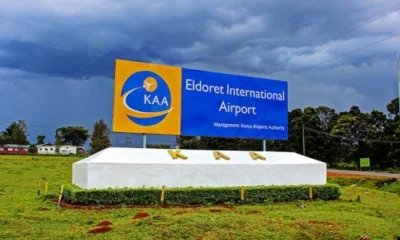NAIROBI, Kenya May 5 – The Kenya Health Federation has petitioned the Government to consider fast-tracking the ratification of the African Medicines Agency (AMA) treaty.
The treaty’s ratification, alongside the recently announced establishment of a Moderna Vaccines manufacturing facility, KHF notes presents vast opportunities for Kenya and will enhance our national positioning as a pharmaceutical investments destination.
In a media statement signed by KHF chairperson Dr. Kanyenje Gakombe and CEO Dr. Anastasia Nyalita, the federation implored the Government through the Ministry of Health to fast track the Ratification of the Treaty for the Establishment of African Medicines Agency, AMA, as well as secure hosting of AMA in Kenya.
“The AMA Treaty entered into force on 5th November 2021 upon depositing the 15th Instrument of ratification at the African Union Commission. Kenya is among the countries that have neither signed nor ratified the treaty, and we call upon the Kenyan Government to support this initiative,” KHF said.
The statement added: “We are confident that these two opportunities; Moderna Manufacturing Facility and AMA, present huge benefits for our country and its citizens, which include, among others; sustainable supply chains, technology transfer, knowledge transfer, skills transfer, manufacture of complex and more advanced medicines and economic empowerment through the creation of new quality jobs and export opportunities.”
AMA is an African Continental Agency that contributes to the improved regulation of medicines, medical products and technologies and to advance the implementation of the Pharmaceutical Manufacturing Plan of Africa. This will further cement the Business Case for Kenya as a Hub for high quality and affordable health products, health Technologies and healthcare provision/delivery attracting investments in Biopharmaceuticals, vaccines, related medical products and infrastructure and therefore catapulting Kenya to a leadership position in the sustainable supply of pharmaceuticals, vaccines, medical products, medical technologies, healthcare technology and service delivery.
KHF which is also the Health Sector Board of the Kenya Private Sector Alliance (KEPSA), lauded the Government, for securing the deal for Moderna Inc(MRNA.O) to set up a $500 million manufacturing facility in Kenya, its first in Africa, to produce 500 million doses of mRNA vaccines to the continent each year.
The Kenya healthcare system, with its large and well-trained and skilled workforce, including specialists in state-of-the-art medical facilities spread across the public and private sector, KHF said makes Kenya ideal for the Moderna Vaccine Manufacture. The establishment of the Kenya Biovax Ltd. and the formation of a National Multi-Agency Committee of Human Vaccine Production by the Government of Kenya was one of the first steps toward realizing human vaccine manufacturing in Kenya.
Advertisement. Scroll to continue reading.
While the Moderna Vaccine manufacturing plant will be the first of its kind in Kenya, it is noteworthy that Kenya has been manufacturing animal vaccines through the Kenya Veterinary Vaccines Production Institute. This experience can be leveraged in setting up and running the proposed COVID19 manufacturing plant.
Research, development, and production of COVID-19 vaccines in Africa is critical to ensure the sustainable supply of vaccines to enable a quicker response to other infectious agents in the future. This approach could become a rewarding investment for companies, governments, and funders since Africa’s demand for vaccines already makes up about a quarter of global vaccine volume and is expected to increase with the region’s estimated 2.5% annual population growth.
Since the inception of the Kenya Expanded Programmes on Immunization (KEPI) in 1980 as a part of the Global Expanded Programmes for Immunization, Kenya has made significant progress in the prevention of many vaccine-preventable killer human diseases.
This was followed by the initiation of several vaccine programs like the Kenya Aids Vaccine Initiative – Institute of Clinical Research (KAVI -ICR). KAVI – ICR is a research unit, established in 1998, that has successfully undertaken numerous HIV vaccine trials, drug trials, epidemiological, and basic research projects. In addition, the Kenya Medical Research Institute (KEMRI)- Wellcome Trust Research Programmes formally established in 1989, is a partnership between KEMRI, Oxford University, and the Wellcome Trust.
KEMRI has grown from its humble beginnings over 40 years ago to become a regional leader in human health research, including vaccine research, and currently ranks as one of the leading Centres of excellence in health research both in Africa and globally. It conducts basic, epidemiological, and clinical research in parallel and aims to expand the country’s capacity to conduct multidisciplinary research that is strong, sustainable, and internationally competitive. In 2021, Kenya launched the first malaria vaccine (RTS, S) administration alongside Malawi and Ghana, following three decades of research on the vaccine.
This ongoing discussion demonstrates that Kenya is well equipped with expertise for vaccine research, clinical trials, epidemiological studies, and pharmacovigilance studies. A local manufacturing plant for the Moderna COVID-19 vaccine will ramp up Kenya’s human vaccine resources and contribute to the achievement of UHC, which includes ensuring that all citizens live free of vaccine-preventable diseases. Notably, this initiative will serve as a benchmark and guide for other vaccine and drug manufacturing facilities in Kenya and the region, even as Kenya attracts health investors.

 Columns And Opinions1 week ago
Columns And Opinions1 week ago
 Business News1 week ago
Business News1 week ago
 General News1 week ago
General News1 week ago
 Entertainment1 week ago
Entertainment1 week ago
 General News1 week ago
General News1 week ago
 Columns And Opinions1 week ago
Columns And Opinions1 week ago
 Columns And Opinions1 week ago
Columns And Opinions1 week ago
 Sports5 days ago
Sports5 days ago


